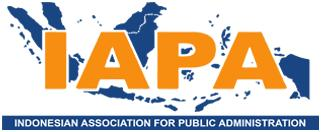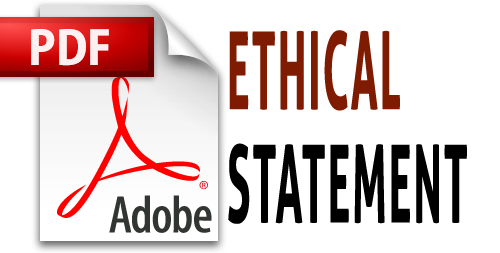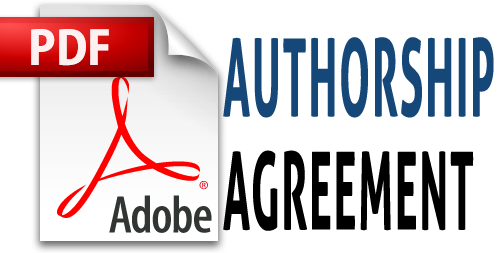Public Service Intervention in Coffee Plantations Optimisation of Rejang Lebong District
Abstrak
Rejang Lebong Regency is one of the main coffee-producing regions in Indonesia, with great potential to increase coffee productivity and added value. However, coffee management in this area still faces various challenges, such as low production efficiency, lack of application of modern technology, and hesitant market access and policy support. This study purposed to determine the causes of the low income and welfare of coffee farmers in Rejang Lebong Regency and as a promotion and branding of coffee in Rejang Lebong Regency that has not been recognized at the national and international levels. The method used included descriptive research, which explained factual phenomena conceptually, with data collection through surveys. The results showed that greater efforts or strengths are still required to overcome various kinds of weaknesses and utilize existing opportunities to overcome obstacles. The research recommended the integration of community-based coffee development programs and policy support from the local government to create a sustainable coffee management system. Optimizing coffee management in Rejang Lebong Regency is expected to encourage the improvement of farmers' welfare, environmental sustainability, and the strengthening of the regional economy.
Kata Kunci
Teks Lengkap:
PDF (English)Referensi
Abdurrahman, A., & Suryana, A. (2020). Strategi pengembangan kopi di Indonesia: Pendekatan ekonomi dan sosial. Jurnal Agribisnis Indonesia, 12(2), 75–90.
Almandoz, J., & Pacheco, D. (2019). Multidisciplinary approaches in public service delivery: Integrating social, economic, and cultural factors. Public Administration Review, 79(4), 555–567. https://doi.org/10.1111/puar.13008
Arifin, B. (2019). Transformasi sistem agribisnis kopi di Indonesia. Journal of Agribusiness and Rural Development, 6(1), 15–25.
Avelino, J., Cristancho, M., Georgiou, S., Imbach, P., Aguilar, L., Bornemann, G., ... Morales, C. (2015). The coffee rust crises in Colombia and Central America (2008–2013): Impacts, plausible causes and proposed solutions. Food Security, 7(2), 303–321. https://doi.org/10.1007/s12571-015-0446-9
Badan Pusat Statistik. (2022). Statistik perkebunan Indonesia: Kopi. Jakarta: BPS.
BPS Provinsi Bengkulu. (2016). Provinsi Bengkulu dalam angka. Bengkulu: BPS.
BPS Provinsi Bengkulu. (2018). Provinsi Bengkulu dalam angka. Bengkulu: BPS.
Bunn, C., Läderach, P., Ovalle Rivera, O., & Kirschke, D. (2015). A bitter cup: Climate change profile of global production of Arabica and Robusta coffee. Climatic Change, 129, 89–101. https://doi.org/10.1007/s10584-014-1306-x
DaMatta, F. M., Ronchi, C. P., Maestri, M., & Barros, R. S. (2007). Ecophysiology of coffee growth and production. Brazilian Journal of Plant Physiology, 19(4), 485–510. https://doi.org/10.1590/S1677-04202007000400014
Denhardt, R. B., & Denhardt, J. V. (2000). The new public service: Serving rather than steering. Public Administration Review, 60(6), 549–559.
Dirjen Perkebunan. (2021). Laporan tahunan perkebunan kopi Indonesia. Jakarta: Kementerian Pertanian.
Dunn, W. N. (2008). Public policy analysis: An introduction (4th ed.). Pearson Prentice Hall.
Fahmi, E., Suryani, A., & Asriani, P. S. (2020). Analisis rantai nilai kopi: Studi kasus di Provinsi Bengkulu. Jurnal Ekonomi Pertanian, 18(3), 50–60.
Fauzi, A. (2004). Ekonomi sumber daya alam dan lingkungan: Teori dan aplikasi. Jakarta: Gramedia Pustaka Utama.
Fung, A., & Wright, E. O. (2018). Collaborative governance and public value creation: The role of local government. Journal of Public Administration Research and Theory, 28(2), 247–263. https://doi.org/10.1093/jopart/muy039
Gayo, A., & Wahyudi, A. (2018). Teknologi pengolahan pasca-panen kopi untuk peningkatan kualitas. Jurnal Teknologi Pertanian Indonesia, 4(2), 90–101.
Gibbon, P. (2001). Upgrading primary production: A global commodity chain approach. World Development, 29(2), 345–363. https://doi.org/10.1016/S0305-750X(00)00093-0
Hapsari, T., & Putri, S. (2021). Pengaruh pelatihan manajemen terhadap produktivitas petani kopi. Jurnal Pemberdayaan Masyarakat, 7(1), 45–56.
International Coffee Organization. (2022). Annual coffee market report. London: ICO.
Jha, S., Bacon, C. M., Philpott, S. M., Méndez, V. E., Läderach, P., & Rice, R. A. (2014). Shade coffee: Update on a disappearing refuge for biodiversity. BioScience, 64(5), 416–428. https://doi.org/10.1093/biosci/biu038
Keputusan Gubernur Provinsi Bengkulu No. I.67.B.3 Tahun 2019 tentang Pembentukan Tim Penyusun Rencana Induk Pengembangan Kopi Bengkulu.
Keputusan Gubernur Provinsi Bengkulu No. Q.409.B.3 Tahun 2018 tentang Pembentukan Tim Koordinasi Pengembangan Kopi Bengkulu.
Kurniawan, H., & Kusuma, D. (2019). Peluang dan tantangan industri kopi di era globalisasi. Jurnal Inovasi Ekonomi, 11(4), 123–135.
Lestari, M., Suryani, A., & Prasetyo, B. (2020). Analisis SWOT dalam pengembangan kopi berbasis wilayah. Jurnal Perencanaan Wilayah dan Kota, 14(2), 75–88.
Lick, P., & Herlina, T. (2018). Model kemitraan dalam rantai pasok kopi: Studi di Sumatera. Jurnal Logistik Pertanian, 5(3), 60–72.
Mardiasmo. (2009). Akuntabilitas sektor publik: Suatu pengantar. Yogyakarta: Andi.
Moore, M. H. (1995). Defining public value. In Creating public value. Harvard University Press.
Nasution, D., Hidayat, T., & Sari, R. (2021). Peningkatan kualitas kopi melalui diversifikasi produk. Jurnal Penelitian Pertanian, 15(2), 89–99.
Nugroho, H., & Dahuri, R. (2012). Pembangunan wilayah berbasis ekonomi lokal. Jakarta: LP3ES.
Nugroho, S., & Sari, W. (2020). Optimalisasi pengelolaan lahan perkebunan kopi di daerah pegunungan. Jurnal Kehutanan dan Lingkungan, 10(3), 145–157.
Osborne, S. P., Radnor, Z., & Nasi, G. (2012). A new theory for public service management? Toward a (public) service-dominant approach. American Review of Public Administration, 43(2), 135–158. https://doi.org/10.1177/0275074011412678
Perda Provinsi Bengkulu No. 4 Tahun 2008 tentang RPJPD Provinsi Bengkulu.
Perda Provinsi Bengkulu No. 6 Tahun 2010 tentang Sistem Perencanaan Pembangunan Provinsi Bengkulu.
Perfecto, I., & Vandermeer, J. (2015). Sustainable intensification in agricultural landscapes: Integrating ecology, biodiversity and society. Journal of Sustainable Agriculture, 39(2), 112–127. https://doi.org/10.1080/10440046.2014.883799
Permental. (1997). Nomor 940/Kpts/OT.210/10/1997 tentang Pedoman Kemitraan Usaha Pertanian.
Peters, B. G., & Pierre, J. (2016). The role of local governments in public service innovation: Beyond administrative functions. Local Government Studies, 42(4), 457–476. https://doi.org/10.1080/03003930.2016.1146399
Pezzey, J. (1992). Sustainability: An interdisciplinary guide. Environmental Values, 1(4), 321–362.
Ponte, S. (2002). The “Latte Revolution”? Regulation, markets, and consumption in the global coffee chain. World Development, 30(7), 1099–1122. https://doi.org/10.1016/S0305-750X(02)00032-3
Rahmawati, Y., Putri, D., & Santoso, A. (2019). Strategi pengembangan usaha mikro pengolahan kopi di Indonesia. Jurnal Ekonomi Mikro, 8(4), 170–182.
Rangkuti, F. (2014). SWOT balanced scorecard: Teknik menyusun strategi korporat yang efektif plus cara mengelola kinerja dan risiko. Jakarta: Gramedia Pustaka Utama.
Rejang Lebong Regency Government. (2021). Laporan potensi kopi Kabupaten Rejang Lebong. Rejang Lebong: Pemerintah Daerah.
Rosadi, S., & Kartika, H. (2020). Inovasi teknologi untuk meningkatkan produktivitas kopi. Jurnal Teknologi Terapan, 8(1), 34–45.
RPJMD Kabupaten Rejang Lebong. (2019–2024). Pemerintah Kabupaten Rejang Lebong.
Samper, L. F., & Quiñones-Ruiz, X. F. (2017). Towards a balanced sustainability vision for the coffee industry. Resources, 6(2), 17. https://doi.org/10.3390/resources6020017
Setiawan, H., & Utami, D. (2020). The role of local government in increasing coffee farmers’ productivity: A case study in Central Java. Journal of Economics and Development, 21(1), 30–44.
Supriyanto, A., & Hartono, M. (2021). Dampak program pelatihan petani terhadap efisiensi produksi kopi. Jurnal Pendidikan Pertanian, 3(1), 20–30.
Susilowati, D., Nugroho, S., & Wibowo, A. (2021). Pendekatan ekologi dalam pengelolaan perkebunan kopi berkelanjutan. Jurnal Ekologi Pertanian, 9(2), 88–97.
Sutarna, E., Widodo, H., & Nugroho, R. (2017). Integration of disciplines in public service theory: A multidimensional approach for effective governance. Journal of Administrative Science, 14(3), 210–223.
Sutarna, I. T., Husna, K., & Iswari, P. (2017). Elaboration on public administration crises: An endeavor in seeking scientific identity. Policy Governance Review, 1(1).
Valkila, J. (2009). Fair trade organic coffee production in Nicaragua: Sustainable development or a poverty trap? Ecological Economics, 68(12), 3018–3025. https://doi.org/10.1016/j.ecolecon.2009.07.002
Wahyuni, R., & Putra, I. (2018). Analisis potensi dan tantangan kopi specialty di Indonesia. Jurnal Agronomi Tropika, 6(2), 123–134.
Waller, J. M., Bigger, M., & Hillocks, R. J. (2007). Coffee pests, diseases and their management. Perspectives in Agriculture, Veterinary Science, Nutrition and Natural Resources, 2(1), 1–25. https://doi.org/10.1079/PAVSNNR20072057
Yusuf, M., & Hadi, P. (2019). Integrasi sistem agroindustri dalam pengelolaan kopi. Jurnal Agribisnis dan Teknologi Pangan, 5(1), 55–65
DOI: https://doi.org/10.24198/jmpp.v9i2.63201
Refbacks
- Saat ini tidak ada refbacks.
Jurnal Manajemen Pelayanan Publik Indexed By:



This work is licensed under a Creative Commons Attribution-ShareAlike 4.0 International License.


















21.png)



.png)